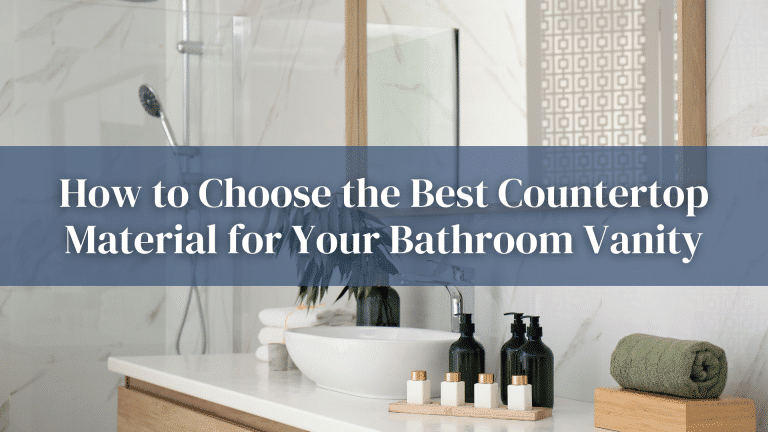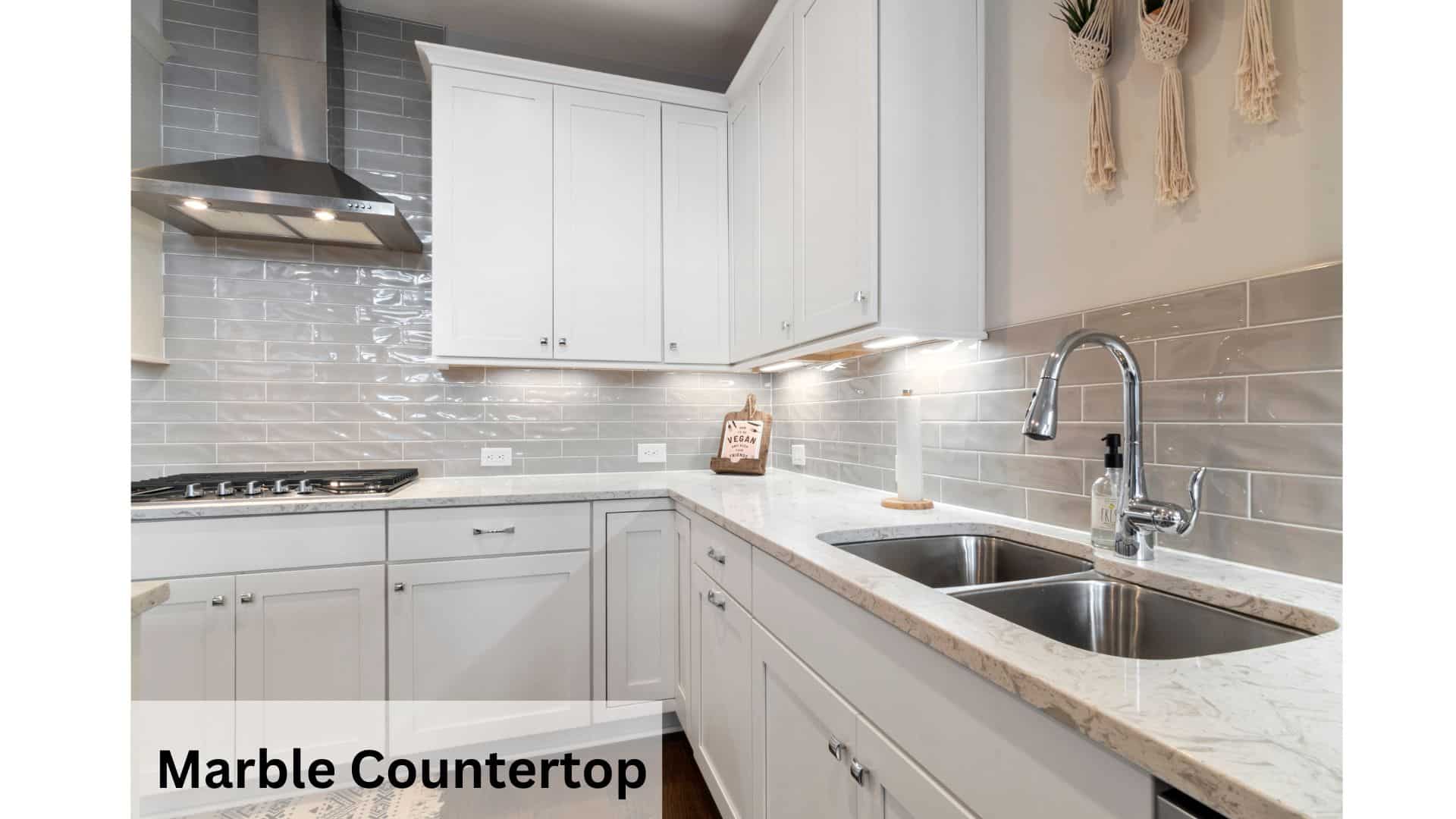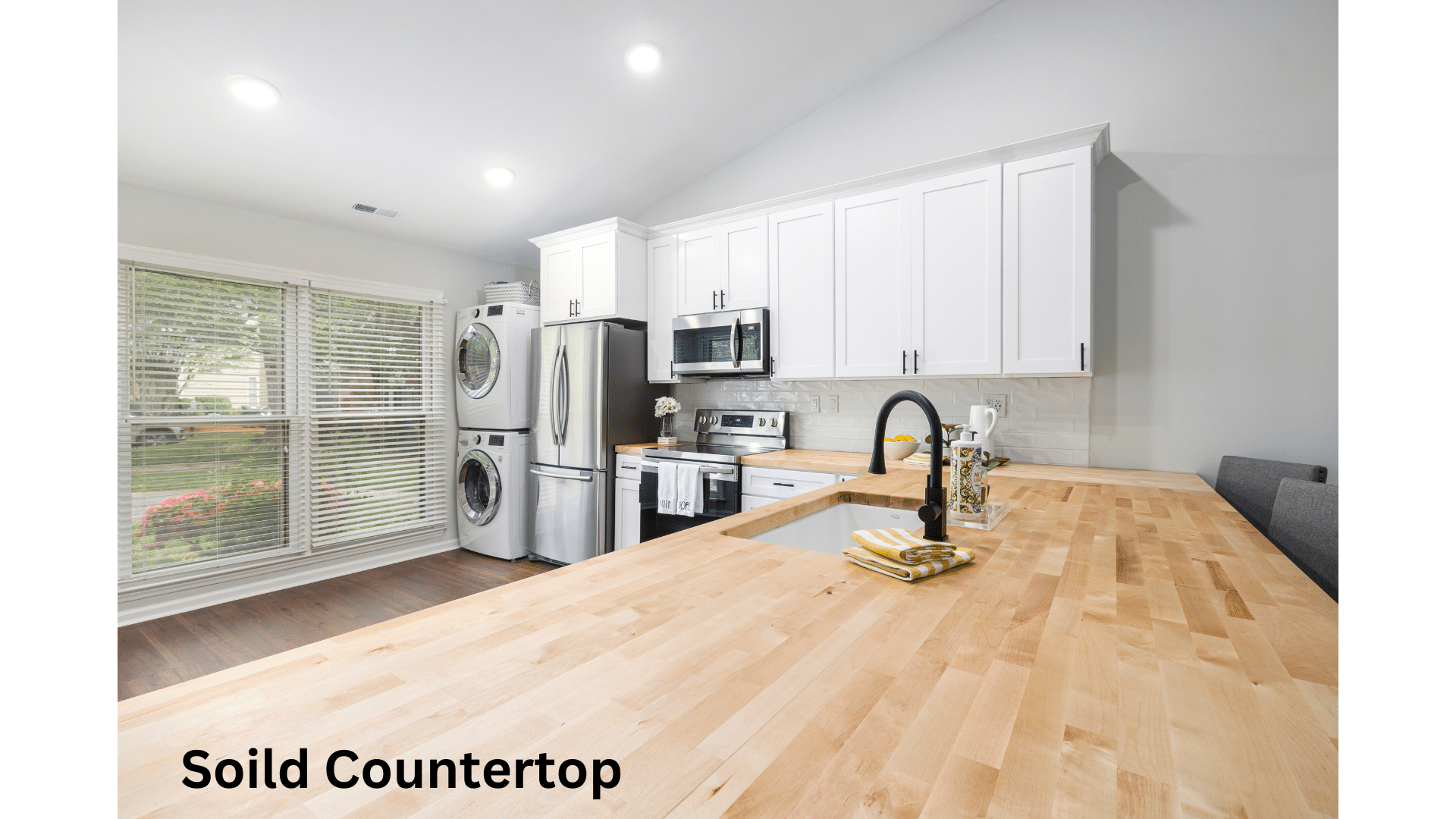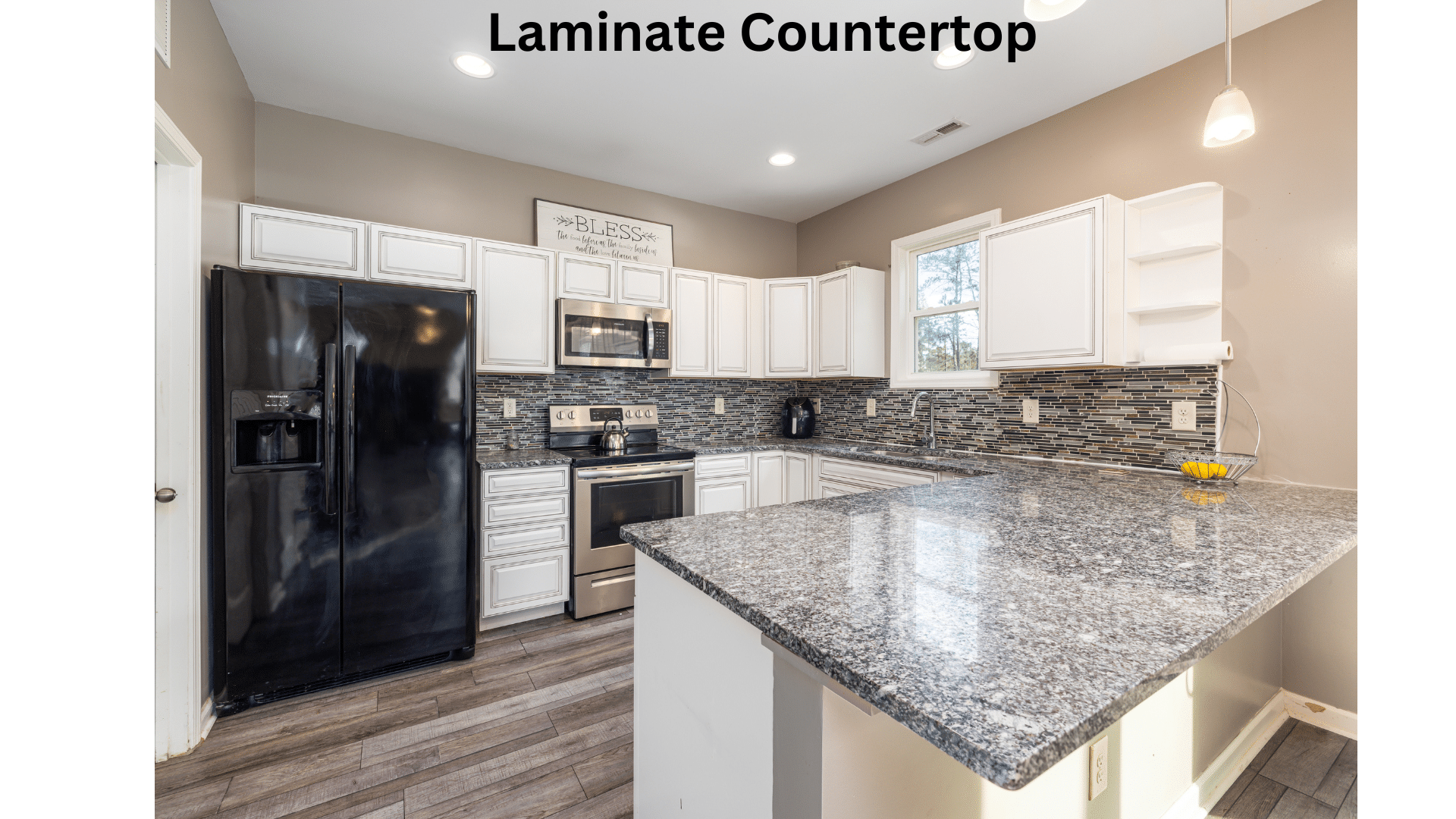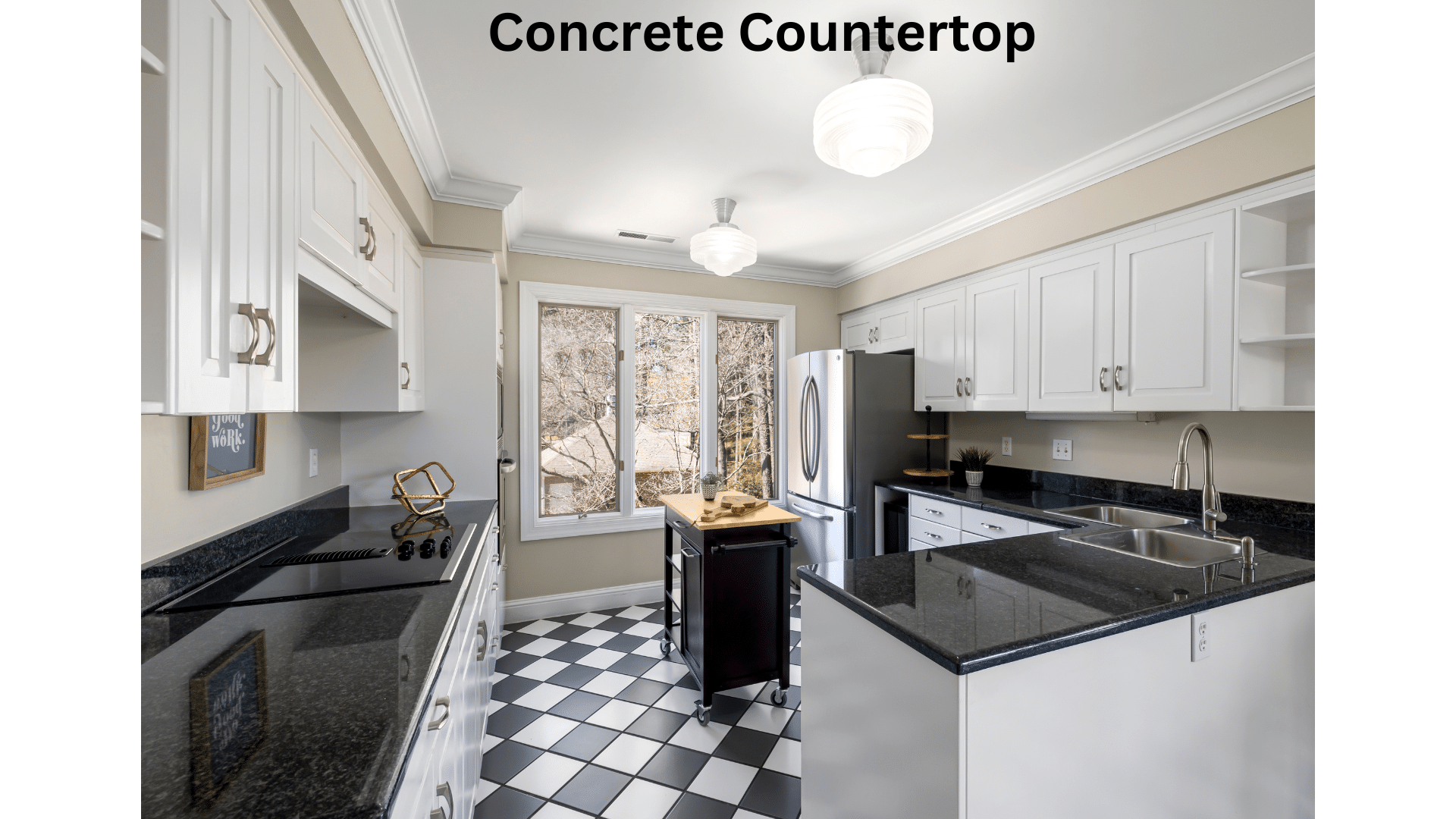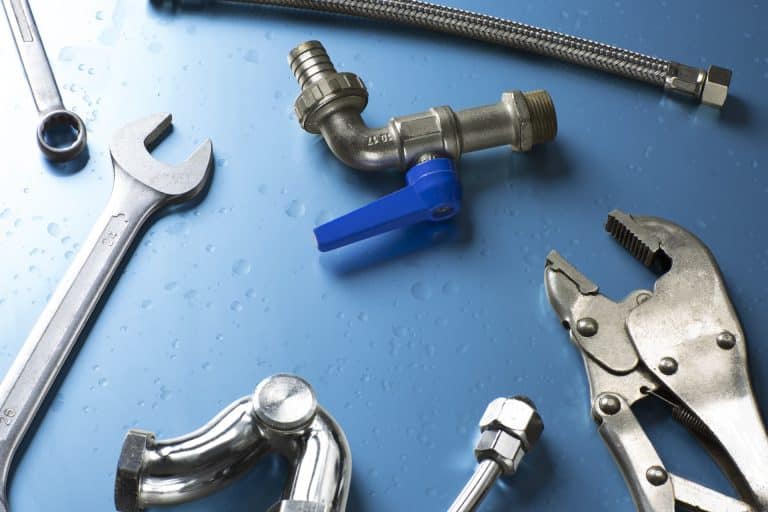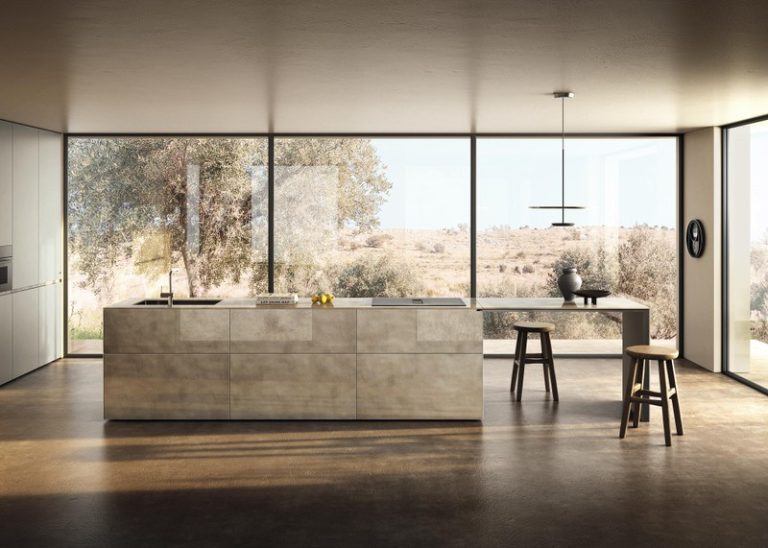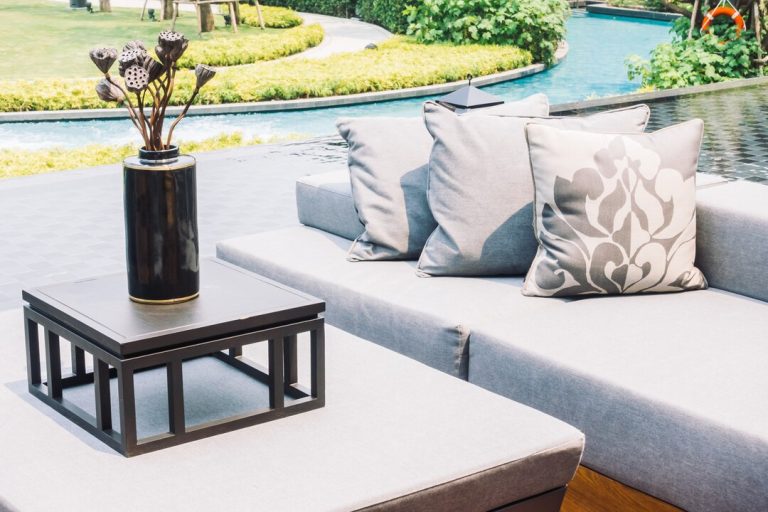Choosing the perfect countertop material for your bathroom vanity is a pivotal choice that can profoundly influence the overall look and usability of your space. Given the multitude of options on the market, it’s crucial to consider several factors, including durability, upkeep demands, personal style preferences, and financial limitations.
This comprehensive guide delves into the diverse array of countertop materials frequently utilized in bathroom vanities. We’ll delve deep into their distinct attributes, offering insightful tips to empower you to navigate through the selection process with confidence and clarity.
1. Granite Countertops
Granite countertops have become a staple in bathroom design due to their remarkable durability and inherent elegance. Renowned for their ability to withstand the rigors of daily use, granite bathroom vanity with sink offer a timeless aesthetic that seamlessly blends functionality with beauty. Their resistance to scratches, heat, and moisture makes them a practical choice for high-traffic areas like bathrooms, where spills and splashes are commonplace.
Beyond their durability, granite countertops offer an extensive range of colors and patterns, ensuring that every vanity can be uniquely tailored to reflect individual style preferences. Whether you prefer the classic allure of a pristine white granite or the earthy warmth of a richly veined slab, there is a granite option to complement any design scheme.
However, it’s essential to note that granite countertops, like any natural stone surface, require regular maintenance to preserve their lustrous appearance. Regular sealing is necessary to prevent staining and preserve the integrity of the granite over time.
With proper care and attention, granite vanities can continue to exude sophistication and charm for years to come, serving as a timeless centerpiece in any bathroom oasis.
2. Marble Countertops
Marble countertops are renowned for their unmatched elegance and sophistication, rendering them an exquisite choice for adorning bathroom vanities. Possessing an innate allure, they boast distinctive veining and patterns that infuse character into any interior setting.
However, despite their allure, marble countertops demand meticulous care and attention to maintain their pristine appearance over time.
While marble exhibits resilience against heat, its susceptibility to scratching and staining warrants cautious handling and preventative measures. As a natural stone, marble is inherently porous, making it prone to absorbing liquids and succumbing to surface blemishes.
Therefore, it is imperative to apply a high-quality sealant to create a protective barrier that safeguards the marble against moisture infiltration and staining agents.
Regular maintenance rituals are integral in the preservation of marble countertops’ allure and longevity. Implementing gentle cleaning techniques using pH-neutral cleansers ensures thorough removal of dirt and grime without compromising the stone’s integrity. Avoiding abrasive cleaning tools and harsh chemicals is paramount, as they can exacerbate scratches and diminish the luster of the marble surface.
3. Quartz Countertops
Quartz countertops are widely revered for their exceptional blend of durability and versatility, rendering them a prime selection for bathroom vanities. Crafted from a fusion of quartz crystals and resin, these countertops boast a non-porous surface, imbuing them with remarkable resistance against scratches, stains, and the proliferation of bacteria.
This unique composition not only fortifies their longevity but also enhances their aesthetic appeal, presenting an array of colors and patterns that effortlessly mimic the allure of natural stone, all while circumventing the arduous maintenance demands associated with genuine stone surfaces.
Moreover, the allure of quartz extends beyond its aesthetic and durability, as it requires minimal upkeep to maintain its pristine appearance. A simple regimen of mild soap and water is all that’s needed for routine cleaning, ensuring that maintaining the luster of quartz countertops remains a hassle-free endeavor.
With their unparalleled durability, aesthetic versatility, and ease of maintenance, quartz countertops emerge as the epitome of sophistication and practicality, elevating the allure of bathroom vanities with timeless elegance and enduring allure.
4. Solid Surface Countertops
Solid surface countertops are a popular choice for homeowners and designers alike due to their versatility, durability, and aesthetic appeal. Crafted from a blend of acrylic or polyester resins combined with minerals, these countertops boast a smooth and seamless surface that adds a touch of elegance to any space.
With a wide range of colors and patterns available, solid surface countertops offer endless design possibilities, allowing homeowners to create custom looks that complement their unique style and preferences.
One of the key advantages of solid surface countertops is their non-porous nature, which makes them highly resistant to stains and moisture. This feature makes them particularly well-suited for use in bathrooms, where spills and splashes are common.
Additionally, the seamless construction of solid surface countertops eliminates the need for grout lines, reducing the risk of mold and mildew growth and simplifying cleaning and maintenance.
Despite their many benefits, it’s essential to note that solid surface countertops may be more prone to scratching or chipping compared to other materials such as granite or quartz.
Therefore, it’s important to handle them with care and avoid cutting directly on the surface or placing hot pots and pans directly on the countertop. With proper maintenance and regular care, however, solid surface countertops can retain their beauty and functionality for years to come, making them a worthwhile investment for any home.
5. Laminate Countertops
Laminate countertops are a practical and cost-effective choice for bathroom vanities, providing an extensive selection of colors and patterns to suit any design aesthetic.
Crafted from multiple layers of plastic laminate securely bonded to a sturdy particleboard or plywood base, laminate countertops offer both durability and ease of maintenance.
Their smooth surface makes them resistant to stains and moisture, ensuring longevity in high-moisture environments such as bathrooms.
While laminate countertops are generally resilient, they may be susceptible to scratching and chipping with prolonged use.
Fortunately, their affordability and accessibility make them a convenient option for homeowners, as they can be effortlessly replaced or refinished to rejuvenate the appearance of your bathroom vanity whenever desired.
6. Concrete Countertops
Concrete countertops have become increasingly sought after in modern bathroom designs, thanks to their sleek and industrial look that adds a touch of contemporary elegance to any space.
Beyond their aesthetic appeal, these countertops offer a remarkable level of customization, allowing homeowners to craft bespoke shapes, textures, and finishes that align perfectly with their personal style preferences.
This versatility enables individuals to infuse their bathrooms with a distinctive character that sets them apart from conventional designs.
In addition to their aesthetic versatility, concrete countertops boast exceptional durability and heat resistance, making them an ideal choice for the high-traffic environment of a bathroom.
Their robust construction ensures that they can withstand the rigors of daily use without showing signs of wear and tear, providing long-lasting functionality and beauty.
Moreover, their ability to withstand heat makes them particularly well-suited for bathroom settings where hot styling tools or heated bathroom fixtures may come into contact with the countertop surface.
7. Tile Countertops
Tile countertops offer an array of design options, presenting a versatile palette of colors, patterns, and materials for homeowners to explore. With their durability and resistance to heat and moisture, they emerge as a favored choice, particularly for bathroom vanities.
Yet, it’s crucial to acknowledge that the grout lines between tiles demand consistent upkeep to ward off staining, necessitating regular maintenance to preserve their pristine appearance.
Furthermore, while tile countertops boast robustness, they may be marginally more prone to chipping or cracking in comparison to solid surface materials, a factor to consider when contemplating their suitability for specific applications.
Conclusion:
Selecting the ideal countertop material for your bathroom vanity involves a thoughtful analysis of various factors, including durability, maintenance needs, design preferences, and budgetary limitations.
From the timeless sophistication of marble to the robustness of quartz and the cost-effectiveness of laminate, there exists a diverse array of countertop materials tailored to accommodate every taste and lifestyle.
Through careful deliberation of the advantages and drawbacks associated with each option and seeking guidance from experienced professionals, you can curate a bathroom vanity that not only exudes beauty and elegance but also fulfills your functional requirements.
With attention to detail and informed decision-making, you can achieve a harmonious blend of style and functionality, elevating the overall ambiance of your bathroom space.
FAQs
1. What factors should I consider when selecting a countertop material for my bathroom vanity?
Several factors should be considered, including durability, aesthetics, maintenance requirements, and budget. Each material has its own unique characteristics that may suit different preferences and needs.
2. What are some popular countertop materials for bathroom vanities?
Popular countertop materials for bathroom vanities include granite, marble, quartz, solid surface, laminate, and porcelain. Each material offers distinct advantages and aesthetics, catering to various styles and preferences.
3. How do I determine the durability of a countertop material?
Durability is a crucial consideration for bathroom countertops, as they are subjected to daily wear and moisture exposure. Look for materials that are resistant to scratches, stains, and water damage, ensuring longevity and low maintenance.

